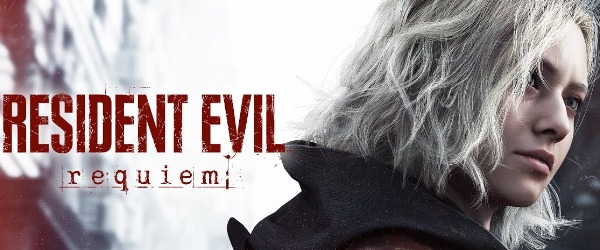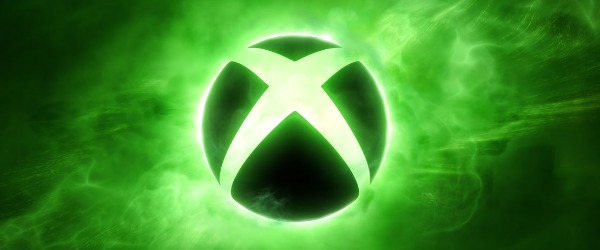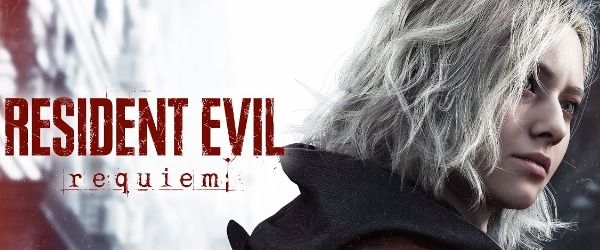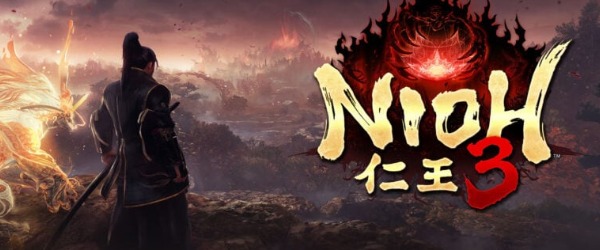
Greatest Video Game Composers: Motoi Sakuraba - Article
by Taneli Palola , posted on 11 February 2016 / 7,840 ViewsOver the last 30 to 40 years many of the best and most respected video game composers of all time have come from Japan. Some have become, if not exactly household names, fairly well known even outside of the video game industry. Names like Koji Kondo and Nobuo Uematsu often come to mind when people talk about video game music, and for good reason. However, there are also composers who, while extremely talented in their own right, never really gain the same kind of attention or status. David Wise, who I covered in the previous article, is one of those composers, as is the person we'll be looking at today – Motoi Sakuraba.
Sakuraba is one of those composers many gamers will have probably heard without even knowing it. Since his first video game score in 1989, he has composed music for over 150 different titles. Even today, at the age of 50 and with over 25 years in the industry, he consistently composes music for several video games every single year. This has made him one of the busiest composers working in the industry today. Despite keeping such a busy schedule, the quality of his music hasn't suffered at all, and as time has passed Sakuraba has grown into one of the best composers working today. After all, it is not without reason that he gets so much work.
As I mentioned, Sakuraba got his start in the industry in 1989 when he began working for the now defunct developer Wolf Team, which would later become famous for creating a certain JRPG series. Most of the games he worked on early on in his career have largely been forgotten since then, especially in the west; a large number were never released outside of Japan and even those that were localized usually didn't amass any kind of lasting legacy. However, Sakuraba's scores for these games were already acclaimed even at this point. Some notable standout soundtracks from early on in his career include Sol-Feace in 1990, Arcus Odyssey in 1991, and Earnest Evans in 1992, all games developed by Wolf Team.
In 1993 he once again composed the soundtracks to several different games, but as with most of the early games he worked on, none of them ever gained much attention. 1994 was much the same, with a large number of scores for games that went nowhere. One of the main reasons why Sakuraba hasn't gained the same kind of attention as some other composers is simply because the vast majority of his early work was confined to these mostly forgotten games that never left Japan.
In 1995 he would finally gain some much deserved recognition for his work, when one of the games he worked on was released in the west and another kicked off a still-running RPG-series. The first was a largely unremarkable RPG on the original PlayStation called Beyond the Beyond, which has the distinction of being the first JRPG on the console to be released in the west. Sakuraba's music for the game is one of its highlights, but it is the other game, which released in December of the same year, that brought his work to the attention of a much larger audience than ever before, at least in Japan. The game in question was Tales of Phantasia for the SNES.
Sakuraba would eventually become the sole composer for the Tales-series, but for this first game he was still working with two other composers. Still, this was the starting point of Sakuraba's rise to prominence within the industry, first in Japan and then eventually in the west as well. The following year would prove to be another good one for sakuraba as he would find himself composing music for yet another series starter - Star Ocean.
This would also be the beginning of another long-lasting relationship between Sakuraba and a development studio. Starting with Star Ocean, he would become tri-Ace's go-to composer for nearly all of its projects (including the upcoming Star Ocean: Integrity and Faithlessness). In general, a large part of Sakuraba's career has been defined by games created by these two developers. In 1996 he would also compose music for a number of other games besides Star Ocean, including Shining the Holy Ark for the Sega Saturn, which was a part of the long-running Shining-series of games from Sega.
Sakuraba kept up his busy working schedule the following year too. In addition to numerous smaller games, he also composed music for the first game in the Hot Shots Golf series, Shining III, and Tales of Destiny, in which he once again collaborated with his long time co-composer Shinji Tamura. The two had been working together on dozens of games since 1992 and would continue to do so for many more years to come.
1998 was an unusually slow year for Sakuraba; he only composed music for two games that were released that year, and of the two only one was in any way notable (the other one was a Japanese-only Pachinko-machine simulation for the Super Nintendo). The notable title was Star Ocean: The Second Story, which was in many ways his most extensive soundtrack to-date as he was not only the sole composer for the game but he was also able to take advantage of the PlayStation's superior sound quality compared to the previous console generation.
The following year Sakuraba would become one of the select few composers to have worked on a Mario game when he composed the soundtrack to Mario Golf on the Nintendo 64. Then in 2000 he composed the soundtrack to Mario Tennis as well, and he would go on to create the music for every single Mario Golf and Tennis game from that point on. So, if you've played those games since the N64 you've been listening to Sakuraba's work. These soundtracks would also prove his versatility and talent in being able to create music for a variety of different genres.
In 1999 Sakuraba would also compose the music for one of the original PlayStation's most beloved cult classics, Valkyrie Profile. Sakuraba was quickly becoming one of the most sought after video game composers in Japan, and games like Valkyrie Profile only improved his reputation further. The soundtrack is filled with great tracks, many of which could be considered among the best pieces of music he has ever composed. He would go on to create music for the rest of the games in the series.
The year 2000 would see the release of Tales of Eternia, once again with music by Sakuraba. The following year he composed the music for yet another classic RPG that would spawn a series - Golden Sun. Two sequels have been released for Golden Sun and, as you may have guessed, Sakuraba composed the music for both. For those keeping score, that makes four different long-running RPG series for which Sakuraba is the main composer.
The game was quickly followed by a sequel in 2002, Golden Sun: The Lost Age, in which he pushed the Gameboy Advance to its limits with the quality of his compositions. He also once again collaborated with Shinji Tamura on the music for Tales of Destiny 2. By the turn of the millennium the two had worked less and less with each other on video game soundtracks, but nearly every time a new Tales game was in development the two would once again get together to create the music for it.
2003 was yet another marquee year for Sakuraba. He started the year with the soundtrack to Star Ocean: The End of Time and concluded it with what is perhaps the most beloved game in the Tales series, Tales of Symphonia. Both of them would become the most successful games in their respective series up to that point, with Star Ocean: The End of Time still holding that distinction.
That wasn't all Sakuraba worked on in 2003 though - he also composed the score to Baten Kaitos: Eternal Wings and The Lost Ocean, which was co-developed by Tri-Crescendo and Monolith Soft, the latter of which would later go on to create the Xenoblade Chronicles games. The game itself would gain something of a cult following in the years following its release and its soundtrack is among Sakuraba's best. By this point he had also amassed his own following amongst JRPG fans and his work was becoming more and more widespread with each passing year.
The next few years would continue along the same track, with Sakuraba mostly working on the soundtracks for new entries in established series. From 2004 to 2006 he composed music for three different Mario sports titles, five different Tales games (Rebirth, Abyss and Tempest among them) and Valkyrie Profile 2: Silmeria, with 2006 being an especially productive year.
2007 on the other hand was a rather uneventful year, with really only one truly notable new soundtrack from Sakuraba. The game in question was Eternal Sonata, for which he not only created a huge array of original music, but also arranged several of Frédéric Chopin's original compositions. The music in the game has a very fantastical and romantic sound, quite possibly influenced by Chopin. His other soundtracks that year were for Drone Tactics on the Nintendo DS and We Love Gold on the Wii.
Sakuraba was one of the 36 composers who worked on the soundtrack of Super Smash Bros. Brawl, arranging new versions of seven tracks for the title's soundtrack. Other composers who worked on the game included Nobuo Uematsu, Yasunori Mitsuda, and Yoko Shimomura. Besides the arrangements for Brawl, Sakuraba also composed several entirely new soundtracks in 2008. Three of them were for Tales games, most notably Tales of Vesperia, which is often considered to be one of the series' best games.
Other soundtracks from that year which you might want to listen to include Infinite Undiscovery and Valkyrie Profile: Covenant of the Plume. Neither game really became successful commercially or critically, but their soundtracks are fantastic. At this point it was becoming clear that Sakuraba could be trusted to make every single soundtrack as good as he possibly could, regardless of the game's overall quality or lack thereof. This is quite clearly evident in Infinite Undiscovery, which has some excellent music attached to it, despite being less than stellar in many other respects.
2009 would bring with it several new games in already familiar franchises, with Sakuraba once again taking over the composition duties, as well as some entirely new games with no connections to any established franchises. The Star Ocean-series would reach its fourth installment with The Last Hope, and Tales of Graces became the twelfth main entry in the long-running series.
Besides those games, he was also one of several composers that worked on Half-Minute Hero for the PSP. The following year would also see him return to compose music for another familiar franchise, in the form of the soundtrack to Golden Sun: Dark Dawn. Perhaps the most interesting score of his from 2010, however, was Resonance of Fate's. The soundtrack was a collaboration between Sakuraba and Kohei Tanaka and produced some absolutely stellar tracks. The game itself has been somewhat forgotten since then, which is a shame since it actually has a very unique style and gameplay that can't really be found elsewhere.
Sakuraba would continue to keep himself very busy over the next few years. He was one of a number of people who worked on the Bravely Default soundtrack, although he didn't actually compose any of the game's music. He was one of the six composers who created the music for Kid Icarus: Uprising. Naturally several new Tales games were released during that time as well.
One soundtrack in particular stands out above all others at this point in time - Dark Souls'. The soundtrack he composed for From Software's action RPG was very different from his usual work and featured an often haunting, almost melancholic style which perfectly fits the game's dark tone and hopeless atmosphere.
In the three year period from 2011 to 2013 he worked on 20 different video games, creating some excellent music in the process for a variety of different game types. However, by far the most common genre of games he worked on was the JRPG genre. In general his music was becoming synonymous with so many different series within the genre that it was almost unusual to not hear his music in a JRPG.
In 2014 he was once again one of several composers to arrange music for Super Smash Bros. for the 3DS and Wii U. He also composed music for Phantasy Star Nova on the PS Vita, adding yet another series to the long list of franchises for which he has composed music. That same year he returned to compose music for the Souls-series, with Dark Souls 2, although this time he shared the duties with Yuka Kitamura.
We're not done yet either - not even close! In 2015 Sakuraba composed music for yet another Tales game (Tales of Zestiria, this time together with Go Shiina), as well as the Scholar of the First Sin DLC for Dark Souls 2 and Mario Tennis: Ultra Smash (his fifth soundtrack for the series).
It's not yet clear which titles Sakuraba will work on this year and beyond. There hasn't been an official announcement regarding the composer(s) for Tales of Berseria just yet, but don't be surprised if Sakuraba does at least some work on the game's score. As of right now there are only two games coming out this year which Sakuraba is definitely composing music for - a little known title from Game Atelier called Monster Boy and the Cursed Kingdom and the next installment in the Star Ocean-series, Integrity and Faithlessness.
We don't really know all that much about the music for either of those games yet, but what little I have heard sounds very promising.
For the last 25+ years, Motoi Sakuraba has slowly risen to become one of the most prolific video game composers of all time. He is undoubtedly one of the hardest working individuals in the video game industry today, composing the music for nearly 40 different games just from 2010 to 2015.
As always, thanks for reading, and feel free to share your favourite Motoi Sakuraba tracks in the comments section below.
More Articles
Motoi is the man. Extremely talented and a very hard worker. The amount of material he puts out is insane. He deserves a lot of recognition.
Fav. sountracks of his are Valkyrie Profile and Tales of Phantasia (SNES), though I still haven't listened to all of them. Also, the final boss theme to Dark Souls is so haunting and perfect. I love it.
Again, nice write-up. Good job! This is a wonderful series of articles so far
His remaster of the Final Boss in Golden Sun that features in Smash Bros should definitely be on this list. Cause that theme is impressive.
Valkyrie Profile nuff said. Thank you! <3
Yep more than tallent, what makes him stand out is his work ethic.
You have to believe in what you put out, and not secound guess everything you make, to be able to keep a tempo like that as well.
Hes probably one of those guys that worked hard to get good, but is just as good as people naturally gifted.






















 Essay Pro
Essay Pro